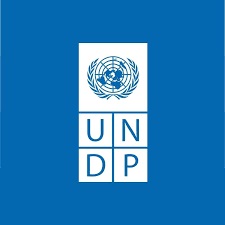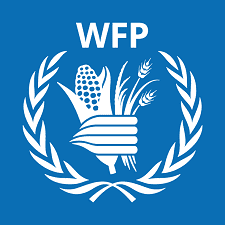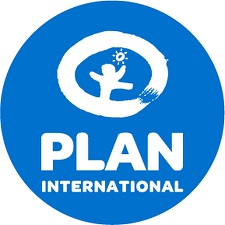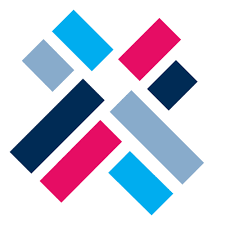🇸🇱 Job Vacancies @ United Nations Development Programme (UNDP) – 2 Positions
 United Nations Development Programme (UNDP) is recruiting to fill the following positions:
United Nations Development Programme (UNDP) is recruiting to fill the following positions:
1.) Results Measurement Specialist
2.) Head of Exploration
See job details and how to apply below.
1.) Results Measurement Specialist
Job Identification : 13567
Locations : Freetown, Sierra Leone
Posting Date : 09/08/2023, 02:33 PM
Apply Before : 09/24/2023, 03:59 AM
Job Schedule : Full time
Agency : UNCDF
Grade : NPSA-10
Vacancy Type : National Personnel Service Agreement
Practice Area : Effectiveness
Bureau : Regional Bureau for Africa
Contract Duration : 1 Year with Possibility for extension
Education & Work Experience : Master's Degree - 5 year(s) experience OR Bachelor's Degree - 7 year(s) experience
Required Languages : English
Desired Languages : Any Local Languages
Vacancy Timeline
2 Weeks
Job Description
Background
Diversity, Equity and Inclusion are core principles at UNDP: we value diversity as an expression of the multiplicity of nations and cultures where we operate, we foster inclusion as a way of ensuring all personnel are empowered to contribute to our mission, and we ensure equity and fairness in all our actions. Taking a ‘leave no one behind’ approach to our diversity efforts means increasing representation of underserved populations. People who identify as belonging to marginalized or excluded populations are strongly encouraged to apply. Learn more about working at UNDP including our values and inspiring stories.
UNDP does not tolerate sexual exploitation and abuse, any kind of harassment, including sexual harassment, and discrimination. All selected candidates will, therefore, undergo rigorous reference and background checks.
The United Nations Capital Development Fund (UNCDF) is the United Nations' flagship catalytic financing entity for the world’s 46 Least Developed Countries (LDCs). With its unique capital mandate and focus on the LDCs, UNCDF works to invest and catalyze capital to support these countries in achieving the sustainable growth and inclusiveness envisioned by the 2030 Agenda for Sustainable Development and the Doha Programme of Action for the least developed countries, 2022–2031.
UNCDF builds partnerships with other UN organizations, as well as private and public sector actors, to achieve greater impact in development; specifically, by unlocking additional resources and strengthening financing mechanisms and systems contributing to transformation pathways, focusing on such development themes as green economy, digitalization, urbanization, inclusive economies, gender equality and women’s economic empowerment.
A hybrid development finance institution and development agency, UNCDF uses a combination of capital instruments (deployment, financial & business advisory and catalyzation) and development instruments (technical assistance, capacity development, policy advice, advocacy, thought leadership, and market analysis and scoping) which are applied across five priority areas (inclusive digital economies, local transformative finance, women’s economic empowerment, climate, energy & biodiversity finance, and sustainable food systems finance).
The incumbent will promote UNDP's mandate as a gender-responsive organization with zero tolerance to discriminatory and abusive behavior, including sexual harassment, sexual exploitation and abuse.
UNCDFs digital interventions in Sierra Leone
Digital financial service was introduced in Sierra Leone in 2010, however its large-scale outreach was demonstrated at the height of the Ebola crisis in 2014-2015 to pay Ebola Response Workers (ERWs). UNCDF is focused on creating an inclusive environment for inception and scale up of digital financial services. It has been doing this through support to the Bank of Sierra Leone, digital financial service providers, banks, and other stakeholders in the country to develop the eco-system.
Organizational Context
UNCDF is in the process of implementing the Salon Access to Finance programme in Sierra Leone funded by the EU with the overall objective of contributing to sustainable and inclusive economic development and job creation in the agricultural sector. As part of the EU funded Jobs and Growth programme, “Salone Access to Finance” will promote financial inclusion, access to finance and risk management for agri-businesses. The component will specifically contribute to the two specific objectives: 1). Improved investment climate and business environment and 2). Agro MSMEs show improved performance and expansion.
The UNCDF programme is designed around 4 pillars: 1. Investment
2. Insurance
3. Digital; and
4. Business environment
These will be complemented by a set of activities on Research and Knowledge sharing which cut across the different workstreams. The four mutually reinforcing pillars aim at enhancing access to financial services and diversifying risks across agricultural value chains. The program aims at boosting food and nutrition security, jobs, and wealth creation. The program will target specifically youth, women, and people with disabilities. The innovative design approach combines technical and financial assistance for MSMEs in the form of grants from UNCDF and loans obtained from local financial institutions together with technical assistance provided to financial services providers to handle a sector they are less familiar with. This approach comes with the development of a digital platform to facilitate the delivery of services, reporting and credit scoring of MSMEs active in the agricultural sector.
Duties and Responsibilities
The Results Measurement Specialist is responsible for day-to-day management of the project Communication and Knowledge Specifically, the following tasks will be accomplished: 1. Coordinate implementation of results-based management frameworks:
- Developing and implementing results measurement frameworks and learning strategies for UNCDF activities related to the Jobs and Growth program in Sierra Leone. Use insights to support overall program development and inform the UNCDF digital strategy and research agenda;
- Designing, coordinating, and supporting quantitative and qualitative research in the field of impact investment and financial inclusion. Survey design and sampling, coordinate launch of surveys and qualitative interviews in close collaboration with survey companies;
- Conducting data analysis to identify program priorities, inform market engagements and capture UNCDF results and impact;
- Coordination and knowledge dissemination to private sector (e.g. financial service providers (FSPs), telcos, SMEs) and public sector stakeholders (e.g. Central Bank, Ministries, departments and agencies and regulators) in data analytics, usage and monitoring;
- Support donor reporting and content development for knowledge products including focus notes, presentations, blogs, infographics, and policy notes.
2. Effective implementation of the joint programmes, including planning, monitoring, and reporting:
- The results measurement frameworks, learning strategies and relevant tools are developed, validated and implemented;
- Research and analysis on (digital) financial inclusion, agriculture finance and other relevant topics is coordinated and implemented, and findings are shared with relevant stakeholders;
- Content for knowledge products is produced, including focus notes, presentations, blogs, infographics, and policy notes;
- UNCDF portfolio partner data is collected, analyzed and recommendations are formulated;
- Primary and secondary data sources are identified and used to identify program priorities, inform market engagements and capture UNCDF results and impact;
- UNCDF results and impact are measured, consolidated and packaged for donor reporting and dissemination;
- Learnings from UNCDF activities are captured and shared internally and externally;
- Age, Gender and Diversity (AGD) perspective is systematically applied, integrated and documented in all activities throughout the program implementation.
3. Responsible of reporting and meeting different programme’s reporting requirement at different stakeholder’s levels:
- Provide the Project Manager with timely, efficient, effective, and relevant progress reports;
- Report monthly, quarterly, semi Annually and annual on all activities to the Project Manager;
- Prepare quarterly Reports on all components, following donor’s guidelines and agreed formats;
- Closely coordinate with the Project team members to collect their quarterly progress reports on the Project implementation and development. Develop Monitoring and Evaluation reports on the project’s interventions in line with the identified objectives and aimed results.
4. Keep liaison with different stakeholders and Programme Team to ensure the design and implementation of the Result Measurement is made in collaboration with all relevant actors:
- Provide feedback to the Project Manager on project strategies and activities. Give sound recommendations to management for better implementation, so as to achieve expected results, indicators and objectives;
- Clarify Result Measurement responsibilities of different project personnel, and assist the program team with Result Measurement tools and in supporting them in their use;
- Effective participation in annual project reviews and planning activities, and assist in preparing relevant reports. Provide top quality Result Measurement advisory services to the Partners, and other stakeholders, including coaching partners to forward better utilization of methodology and tools;
- Undertake regular visits to the field to support implementation of M&E and to identify where adaptations might be needed. Contribute to knowledge management, dissemination, and building in close coordination with UNDP and local partner’s staff.
Institutional Arrangement
The Result Management Specialist will join the IDE team in Sierra Leone, based in Freetown, and will contribute to the effective delivery of the activities by the practice, reporting to the IDE Country Lead while working in close collaboration with the KM and Communications Lead, and as part of the regional IDE communications team.
Competencies
Core Competencies
- Achieve Results: LEVEL 3: Set and align challenging, achievable objectives for multiple projects, have lasting impact;
- Think Innovatively: LEVEL 3: Proactively mitigate potential risks, develop new ideas to solve complex problems;
- Learn Continuously: LEVEL 3: Create and act on opportunities to expand horizons, diversify experiences;
- Adapt with Agility: LEVEL 3: Proactively initiate and champion change, manage multiple competing demands;
- Act with Determination: LEVEL 3: Think beyond immediate task/barriers and take action to achieve greater results;
- Engage and Partner: LEVEL 3: Political savvy, navigate complex landscape, champion inter agency collaboration;
- Enable Diversity and Inclusion: LEVEL 3: Appreciate benefits of diverse workforce and champion inclusivity.
Cross functional & technical competencies
Business Management
- Result-based management: Ability to manage programmes and projects with a focus at improved performance and demonstrable results.
Business Management
- Monitoring: Ability to provide managers and key stakeholders with regular feedback on the consistency or discrepancy between planned and actual activities and programme performance and results;
Business Management
- Evaluation: Ability to make an independent judgement based on set criteria and benchmarks -Ability to anticipate client's upcoming needs and concerns.
Business Development
- Knowledge generation: Ability to research and turn information into useful knowledge, relevant for context, or responsive to a stated need.
Business direction and strategy
- Effective decision making: Ability to take decisions in a timely and efficient manner in line with one’s authority, area of expertise and resources.
Digital and innovation
- Digital inclusion: Knowledge of how digital inclusion works, opportunities and challenges for governments and society.
Business Management
- Risk Management: Ability to identify and organize action around mitigating and proactively managing risks.
Required Skills and Experience
Education:
- Master's degree in Economics, Finance, Public/Business Administration, Social Sciences, Technology and/or related field.
- Bachelor's degree in a relevant field with additional 2 years of qualifying experience will be given due consideration in lieu of the Master's degree.
Experience:
- Minimum 5 years (with a Master's) degree or 7 years (with a Bachelor's degree) of relevant experience with sound knowledge and understanding of UN Programmes and project management modalities;
- Experience in Analysis and Result Measurement methods in the development context, project monitoring and evaluation implementation of RM systems, particularly systems based on participatory approaches and training in RM development and implementation.
Required skills:
- Proven experience in coordinating and supporting Result Based Measurement (RBM) including annual work-planning and reporting exercises;
- Experience in the usage of computers and office software packages (MS Word, Excel etc.) and advance knowledge of spreadsheet and database packages;
- Experience in development and/or use of monitoring tools and methodologies, design of evaluation is required.
- Able to work effectively in a team and in an international environment;
- Excellent interpersonal skills with an ability to communicate and engage with project stakeholders;
- Proactive approach to meeting deadlines and delivering results with limited supervision.
Desired skills:
- Solid experience in implementation and coordination of interventions at the sub – national level;
- Experience in use of SPSS Stata, R Studio, Power BI, Tableau, Nvivo and similar packages is an advantage;
- Experience in the implementation of community – based interventions is an asset;
- Solid experience in developing results frameworks and Theory of Change, and M&E plans for development projects;
- Demonstrated knowledge of Business Processes.
Language:
- Excellent knowledge of the English (fluency in both spoken and written).
- Fluency in any local languages.
Disclaimer
Applicant information about UNDP rosters
Note: UNDP reserves the right to select one or more candidates from this vacancy announcement. We may also retain applications and consider candidates applying to this post for other similar positions with UNDP at the same grade level and with similar job description, experience and educational requirements.
Scam warning
The United Nations does not charge any application, processing, training, interviewing, testing or other fee in connection with the application or recruitment process. Should you receive a solicitation for the payment of a fee, please disregard it. Furthermore, please note that emblems, logos, names and addresses are easily copied and reproduced. Therefore, you are advised to apply particular care when submitting personal information on the web.
2.) Head of Exploration
Job Identification : 11674
Locations : Freetown, Sierra Leone
Posting Date : 09/07/2023, 03:01 PM
Apply Before : 09/23/2023, 03:59 AM
Job Schedule : Full time
Agency : UNDP
Grade : NOB
Vacancy Type : Fixed Term
Practice Area : Innovation
Bureau : Regional Bureau for Africa
Contract Duration : 1 Year
Education & Work Experience : Master's Degree - 2 year(s) experience OR Bachelor's Degree - 4 year(s) experience
Required Languages : English
Vacancy Timeline
2 Weeks
Mobility required/no mobility
no mobility required
Job Description
Background
Diversity, Equity and Inclusion are core principles at UNDP: we value diversity as an expression of the multiplicity of nations and cultures where we operate, we foster inclusion as a way of ensuring all personnel are empowered to contribute to our mission, and we ensure equity and fairness in all our actions. Taking a ‘leave no one behind’ approach to our diversity efforts means increasing representation of underserved populations. People who identify as belonging to marginalized or excluded populations are strongly encouraged to apply. Learn more about working at UNDP including our values and inspiring stories.
UNDP does not tolerate sexual exploitation and abuse, any kind of harassment, including sexual harassment, and discrimination. All selected candidates will, therefore, undergo rigorous reference and background checks.
The UNDP Strategic Plan embraces the complexity of development and commits the organization to helping countries find faster, more durable solutions to achieve Agenda 2030. Important development trends like urbanization, climate change, and rising inequalities pose significant challenges on our path to achieve the 2030 agenda of achieving the Sustainable Development Goals (SDGs).
UNDP has begun incubating a number of strategic initiatives aimed at ensuring UNDP is ‘fit for purpose’ to deliver a new generation of solutions in line with the challenges the world faces. One such key strategic initiatives is the UNDP Accelerator Lab Network which operates as part of UNDP’s sustainable development offering.
Position Purpose
You are excited about starting, designing and managing activities, direct engagement with local communities and collaboration across global networks. You are driven by learning new things, figuring out how they work and translating them across sectors. You tell stories of emergent solutions and you gravitate to solving global development challenges.
You have a natural inclination to interdisciplinary, cross cultural mindset and cross sectoral experience with the cosmopolitan attraction for diversity. You are driven by a strong sense of purpose and commitment to make change happen and a keen eye to identify emerging opportunities and ‘at the edge’ trends. You are open to discovery and exploration, capable of articulating insights and ideas through visual thinking, open to serendipity and discovery yet are pragmatic and constructive working with public sector authorities. You are comfortable with ambiguity, capable of zooming out for context and zooming in for content and execution- sharp in pursuit of objectives, fast at adapting and changing course when needed. You have superb competencies in program and portfolio management, are at ease with decision-making processes and dynamics of different models of governance.
You are curious, a natural strategic thinker and a talented do-er. You understand systems, the good, the bad and the ugly, and are capable of working within bureaucracies to make change, leverage technology to extend, enhance and multiply exploration, discovery and execution. You are digitally savvy, you hack tools, and you are keen to be a part of a large global organization exhibiting United Nations values.
The Accelerator Labs will be comprised of a core team with niche capabilities that focus on exploration, experimentation and grassroots innovation. Within the first 6-8 months of the Lab fully functioning, each member of the Core team will take the lead on one of the following functions: 1) Coordination
2) Training
3) Communications
The Core team of the Accelerator lab will have capabilities in:
- Experimentation (instituting rapid learning about emerging challenges through design and running of a portfolio of experiments that is coherent with the type of challenges that are part of UNDP’s strategic plan, and
- Mapping Solutions: ethnographic methods and immersion in community dynamics, identification of and work with lead users, and implications of bottom up solutions for the policy design.
- Exploration: The exploration function focuses on discovery and sense making of emerging trends, implications for systemic impacts and risks, and their potential for accelerating progress toward SDGs. Its work feeds into the portfolio of experiments ensuring its coherence with the emerging risks and opportunities and connects local dynamics and solutions into the broader national and international ecosystem of potential funders, partners, and allies thereby increasing the chances for acceleration. While critical for the functioning of the Accelerator Lab, the exploration function will also service the Country Office as determined and agreed with the UNDP senior management.
Duties and Responsibilities
1. Horizon scanning and intelligence for the Accelerator Lab
- Identify, visualize and communicate emerging development trends, data, technologies and issues with a particular focus on the edges and “below the radar screen” events, opportunities and players, and systemically map their impacts on economy, environment, society, and livelihoods of the poorest;
- Identify new sources of evidence and insights, analyze and visualize patterns in unstructured sources of data, present new insights in accessible and comprehensive ways to enable sense making and analysis;
- Proactively explore and identify the new methods/approaches and frontier knowledge to tackle development challenges, collaborate with the Experimentation lead to turn these into learning options for addressing specific policy issues in the country;
- Provide technical guidance for horizon scanning, foresight and data analysis for colleagues and partners;
- Contribute to the formulation of the Accelerator Lab service lines to the UNDP Country Programme based on findings from horizon scanning, systems’ mapping, and local knowledge.
2. Tapping into new data sources
- Set up partnerships with private sector companies including mobile network operators among others to gain access to anonymized data sets that can be used for sustainable development;
- Demonstrate through exploratory tests the utility of new data sources for UNDP’s development work;
- Create partnerships for analyses of real time and other data to better inform decisions and policies;
- Design and deliver workshops, tools, or platforms that tap into the collective intelligence of communities and mobilize action;
- Proactively manage risks with using data and technology, including those related to ethics and privacy;
- Transform unstructured data sets into insights for UNDP and partners.
3. Working out loud
- Share findings from the exploration on future trends, new methodologies/approaches, potential partnership, and others within UNDP and with partners;
- Proactively use blog posts and social media to share insights, attract partners and help position Accelerator Lab at the forefront of the exploration of new trends;
- Liaise with UNDP’s global Accelerator Lab network and share learnings and insights from the country-specific experience;
- Jointly with the CO, support lab partners to develop an emerging pipeline of new initiatives, support other activities related to the design and operation of the Lab.
4. Organizational learning and interface with the core business of UNDP
- Set up tools and partnerships to transform information into actionable intelligence;
- Design and deliver horizon scanning trainings for partners and UNDP, help embed horizon scanning and attention to the ‘edge’ activities in the CO and with the partners;
- Work together with your Accelerator Lab colleagues and experts to codify and advance the Accelerator Lab practice and exploration in particular;
- Organize and implement knowledge sharing and network events;
- Lead other activities related to the design and operations of the Accelerator Lab;
- Design and deliver engaging and meaningful methods for reflection on learning from explorations.
Institutional Arrangement
The Head of Exploration will report directly to the Resident Representative.
Competencies
Core competencies
- Achieve Results: LEVEL 2: Scale up solutions and simplifies processes, balances speed and accuracy in doing work.
- Think Innovatively: LEVEL 2: Offer new ideas/open to new approaches, demonstrate systemic/integrated thinking.
- Learn Continuously: LEVEL 2: Go outside comfort zone, learn from others and support their learning.
- Adapt with Agility: LEVEL 2: Adapt processes/approaches to new situations, involve others in change process.
- Act with Determination: LEVEL 2: Able to persevere and deal with multiple sources of pressure simultaneously.
- Engage and Partner: LEVEL 2: Is facilitator/integrator, bring people together, build and/or /maintain coalitions/partnership.
- Enable Diversity and Inclusion: LEVEL 2: Facilitate conversations to bridge differences, considers in decision making.
Functional/Technical competencies
Business Direction and Strategy
- System Thinking: Ability to use objective problem analysis and judgement to understand how interrelated elements coexist within an overall process or system, and to consider how altering one element can impact on other parts of the system.
Business Development
- Knowledge Generation: Ability to research and turn information into useful knowledge, relevant for context, or responsive to a stated need.
Digital and Innovation: Story Telling
- Ability to empathize with people's perceptions, motivations, feelings and mental models and craft narratives to build an emotive argument for change accordingly.
- Ability to present data, insights or information in compelling ways to mobilize resources, talent or action.
- Ability to choose media and channels that is fit for purpose to reach specific target audiences.
Digital and Innovation
- Data Analysis: Ability to extract, analyze and visualize data (including Real-Time Data) to form meaningful insights and aid effective decision making.
Digital and Innovation: Collective Intelligence Design
- Ability to design, lead or manage processes that help a collective to become smarter together by bringing together diverse groups of people, data, and technology.
- Ability to define and articulate why and how collective intelligence can add value to development programming (understanding problems; finding solutions; decision making and mobilizing action; monitoring progress in real time, learning and adapting).
- Being able to integrate different types of data (real-time, ‘ground-truth’ and novel data) to unlock fresh insights. Understand guidelines and principles around data privacy, ethics and protection.
- Increase diversity of inputs - and look beyond the 'usual suspects', ability to navigate and manage a variety of actors, appreciate the diversity in perspectives, opinions, expertise.
- Ability to facilitate platforms or sessions where people can contribute by providing their views and ideas independently and freely.
- Being people-centered: ensure people understand and can determine how their data is used. Feed back inputs and insights to empower people, don’t extract data.
Required Skills and Experience
Education:
- Master’s degree in Social Sciences, Data Science, Statistics, Physics, Computer Science, Business Intelligence, or related field.
- A first-level university degree (bachelor’s degree) in a relevant field in combination with additional two years of qualifying experience will be given due consideration in lieu of the advanced university degree.
Experience:
- Minimum 2 years (with master's degree) or 4 years (with bachelor's degree) of professional experience in development programming or policy; social innovation; partnership building; engagement (public and private sector) and/or resource mobilization;
- Demonstrated capacity in horizon scanning;
- Demonstrated capacity in data analysis and visualization.
Desired additional skills:
- Proven professional knowledge and experience in social innovation approaches such as Systems Thinking, Ethnography, Crowdsourcing, Collective Intelligence Design, Citizen Science, Positive Deviance, Social Network Analysis, Artificial Intelligence/Machine Learning;
- Professional experience in partnership building and engagement (public and private sector);
- Demonstrated capacity to use open data, mobile data, geospatial data, drone & satellite data, citizen data for informing policy making, strategic planning, or programme design;
- Proven professional knowledge and experience in at least one of the following: Future thinking and Foresight, Design Research, and Systems Mapping;
- Key awareness of key global and regional trends;
- Demonstrated access to networks of edge innovators.
Language:
- Proficiency in written and spoken English.
Please note that continuance of appointment beyond the initial 12 months is contingent upon the successful completion of a probationary period.
Disclaimer
Applicant information about UNDP rosters
Note: UNDP reserves the right to select one or more candidates from this vacancy announcement. We may also retain applications and consider candidates applying to this post for other similar positions with UNDP at the same grade level and with similar job description, experience and educational requirements.
Scam warning
The United Nations does not charge any application, processing, training, interviewing, testing or other fee in connection with the application or recruitment process. Should you receive a solicitation for the payment of a fee, please disregard it. Furthermore, please note that emblems, logos, names and addresses are easily copied and reproduced. Therefore, you are advised to apply particular care when submitting personal information on the web.




